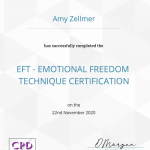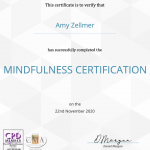We are creatures of habit. Everything we think, say and do is a result of habits that were planted into our minds through years and years of learned behaviors from others.
There have been studies done that 45% of everything we do in a day are based on habits.
So, why not create good habits to help you live your best life?
Do you feel like you’re struggling to reach your goals? Maybe you feel like you just can’t get everything done or there’s just not enough time in the day. Are you unsure how to reach your goals? Or maybe you’re like a lot of people who start off really strong when you’re working toward your goals, but then you fall off the bandwagon because your old habits end up taking over.
What can you do on a daily basis to create new habits to live your best life?
Here are 10 daily habits for you to live your best life and finally reach your goals:
- Prepare for the next day– get your things ready for the next day the night before. This habit is great for productivity and making extra time for yourself. Before you go to bed, think of everything you will need for the next day. Pick out your clothes and put everything you need in the same area. This will help you save time in the morning, but also help you start the day on the right foot because you’re not starting off first thing in the morning stressed because you’re running around trying to pack your lunch and find that shirt that you really wanted to wear, but turns out it’s wrinkly and you don’t have time to iron.2. Exercise / Move Your Body Everyday– If you only have time to workout for 10 minutes out of your day then do it. You don’t have to do a serious workout. Just do something to get your blood pumping. You will start to notice that endorphin rush and energy boost and you will want to keep exercising and start squeezing in more time to make it a longer workout.3. Listen to a motivational podcast– when you listen to the news or talks shows, they tend to stress us out. Use your time while you’re working out or driving, to listen to something uplifting and encouraging and watch how your mood immediately changes along with it.
4. Track your day– take a few days to journal everything you do. Look for patterns and find out how much time you’re wasting on social media or other things that you don’t need in your life. Determine how you want to spend your time and make changes accordingly.
5. Keep a gratitude journal– write down 3-5 things that you’re thankful for everyday. If you’re alive and listening to this right now that means you have access to electricity and the internet, you can always find something that you’re grateful for. When you start a gratitude practice, watch how your perspective on your day changes.
6. Meditate everyday– even if it’s just taking 3 minutes to clear and calm your mind, it will help relieve stress and anxiety.
7. Drink plenty of water. Water has several health benefits and if you’re not drinking enough water, you will feel tired and bloated. Make sure that you’re keeping your body hydrated by drinking a minimum of half your body weight in water everyday.
8. Turn off all electronics 30-60 minutes before you go to bed. There have been several studies done that show that computers and phones interfere with your body’s natural production of melatonin, a natural hormone released in the evening to help you feel tired and ready for sleep. Turning off all electronics before you go to bed will help you relax and get a better night’s rest.
9. Focus on the positive– it’s easy to go the entire day complaining, saying negative things, or griping about things other people do. Instead of complaining, try to turn your words into positive words or say something positive to yourself to get your mind off the negatives. Notice how you feel when you’re always complaining versus when you change your mindset to focus on the positive. It will completely change your day.
10. Write down 3 goals everyday- seeing your goals written will make you want to complete them. There’s just something satisfying about being able to check off something on your list that pushes you to work hard and keep going. It’s also a constant reminder when you see them written right in front of you.
I’m curious, do you already do any of these daily habits? Let us know in the comments which ones you already do or which ones you’re going to start doing today so that we can keep each other accountable!
Join me for my FREE 7 Day Wellness Challenge
-
https://awbcce2.aweb.page/p/0bfba5ff-a983-44a9-b1a8-21d09ff81058



